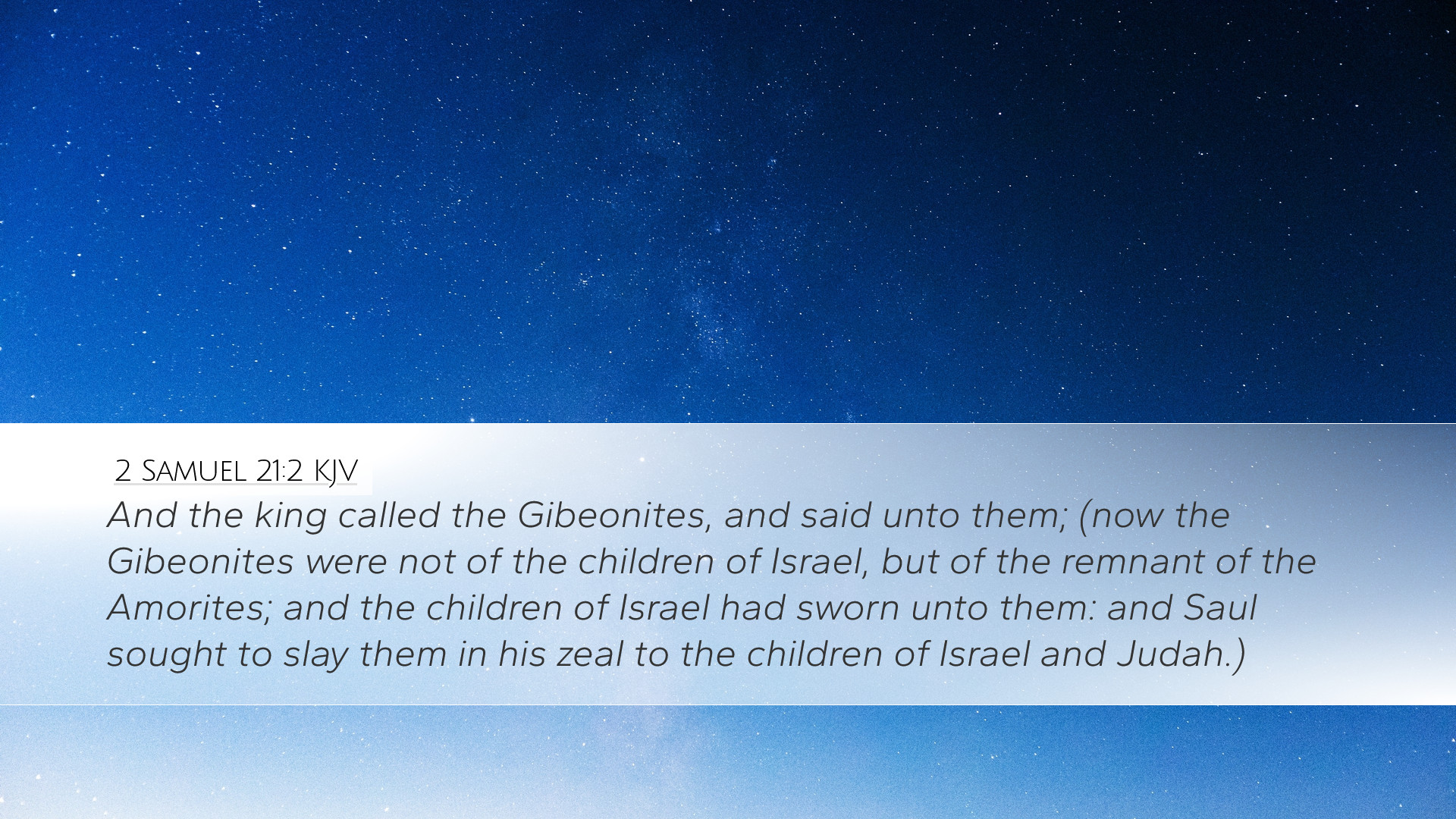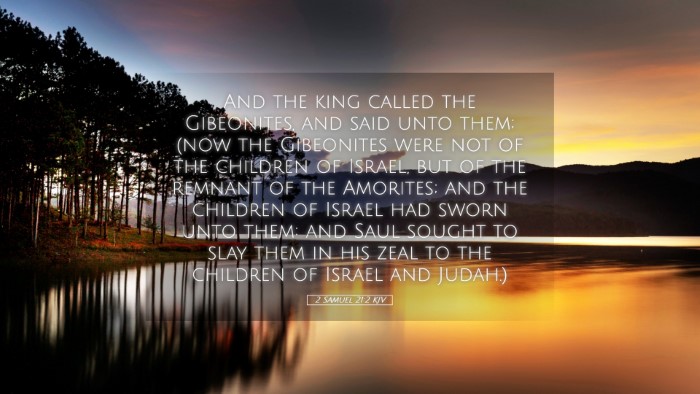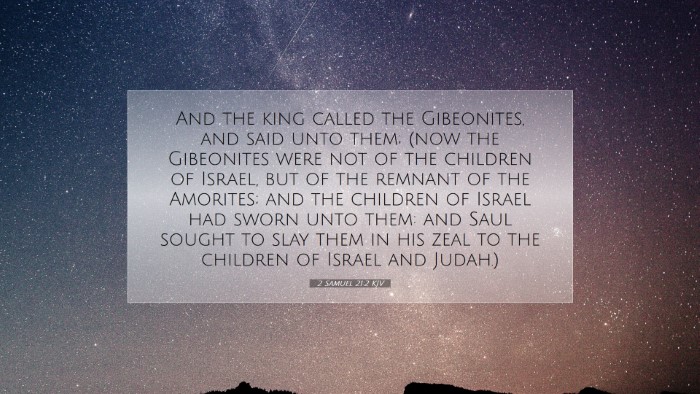Commentary on 2 Samuel 21:2
2 Samuel 21:2 states:
“And the king called the Gibeonites, and said unto them; (now the Gibeonites were not of the children of Israel, but of the remnant of the Amorites; and the children of Israel had sworn unto them: and Saul sought to slay them in his zeal to the children of Israel and Judah.)”
Contextual Overview
The narrative of 2 Samuel 21 presents a significant turning point for King David, set against the backdrop of a famine that struck Israel due to the actions of Saul, the former king. This commentary synthesizes insights from Matthew Henry, Albert Barnes, and Adam Clarke, providing a thorough investigation of this verse’s meaning.
Historical Context
The Gibeonites were originally Hivites, residents of Gibeon, who had deceived Joshua into making a peace treaty with them (Joshua 9). Consequently, the Israelites were bound by oath to protect them. The treachery of Saul, who sought to extinguish the Gibeonites in his political fervor, led to dire consequences that reverberated through the nation of Israel.
Analysis of Key Components
The King's Call
David's initiative in calling the Gibeonites reflects a kingly duty to seek justice and rectify the wrongs committed by his predecessor. According to Matthew Henry, "It was a matter of great importance for the restoration of order; David understood that the famine was a divine judgment associated with the bloodshed of innocent people." Henry emphasizes the need for atonement and resolution.
The Identity of the Gibeonites
Understanding the identity of the Gibeonites as “not of the children of Israel” is critical. Albert Barnes points out that they represent a group often marginalized within Israelite society. Their status as “of the remnant of the Amorites” reminds readers of the historical hostilities and treaties that shape the ancient narrative.
Saul's Zeal
Saul’s pursuit of the Gibeonites in fervent zeal is crucial in understanding his motivations, as highlighted by Adam Clarke. Clarke notes that Saul's actions were driven by nationalistic fervor and a desire to eliminate perceived threats. However, this misguided zeal led to unjust bloodshed and broken oaths, illustrating the dangers of zeal without knowledge (Romans 10:2).
Theological Implications
This narrative raises significant theological questions regarding justice, covenant fidelity, and divine retribution. The covenant made by Israel was not a mere legal obligation; it held profound spiritual significance. As noted by Henry, “Breaking the covenant results in dire consequences not only for the perpetrators but for the entire nation.”
Divine Justice and Retribution
The famine experienced in Israel served as a demonstration of divine justice, acting as God’s way to address the injustices stemming from Saul’s actions. Barnes elucidates that God's displeasure may manifest in various ways, including national calamities, which should prompt His people to seek reconciliation and restoration.
Loyalty and Betrayal
The unfaithfulness shown by Saul stands in stark contrast to the loyalty shown by David as he seeks to honor the covenant. Clarke points out that the narrative underlines the importance of loyalty, both to God and to others. The broken oath serves as a warning to all leaders regarding their responsibilities in maintaining justice and fidelity.
Lessons for Contemporary Applications
This passage urges modern readers, including pastors and theologians, to contemplate the importance of oaths and integrity within leadership. It underscores the consequences of misdirected zeal, providing a cautionary tale relevant to contemporary Christian leadership and ethics.
Leadership and Responsibility
- Seek Justice: Leaders should pursue justice and be willing to confront past wrongs.
- Understand Context: Recognizing the historical and cultural context of decisions can avert future calamities.
- Covenant Faithfulness: The importance of keeping covenants, whether domestic or ecclesiastical, must be highlighted in preaching and teaching.
Community Relations
If the church is to be seen as a beacon of hope and justice, contemporary believers must be mindful of their relationships with those outside their immediate community. The Gibeonites’ plight calls for active engagement and reparative justice among communities of faith today.
Conclusion
In summary, 2 Samuel 21:2 serves as a powerful reminder of the responsibility leaders hold in rectifying injustices and upholding covenants made in faith. This narrative invites all readers to reflect deeply on their callings and commitments within their communities, urging fidelity over zeal and justice over expediency.


